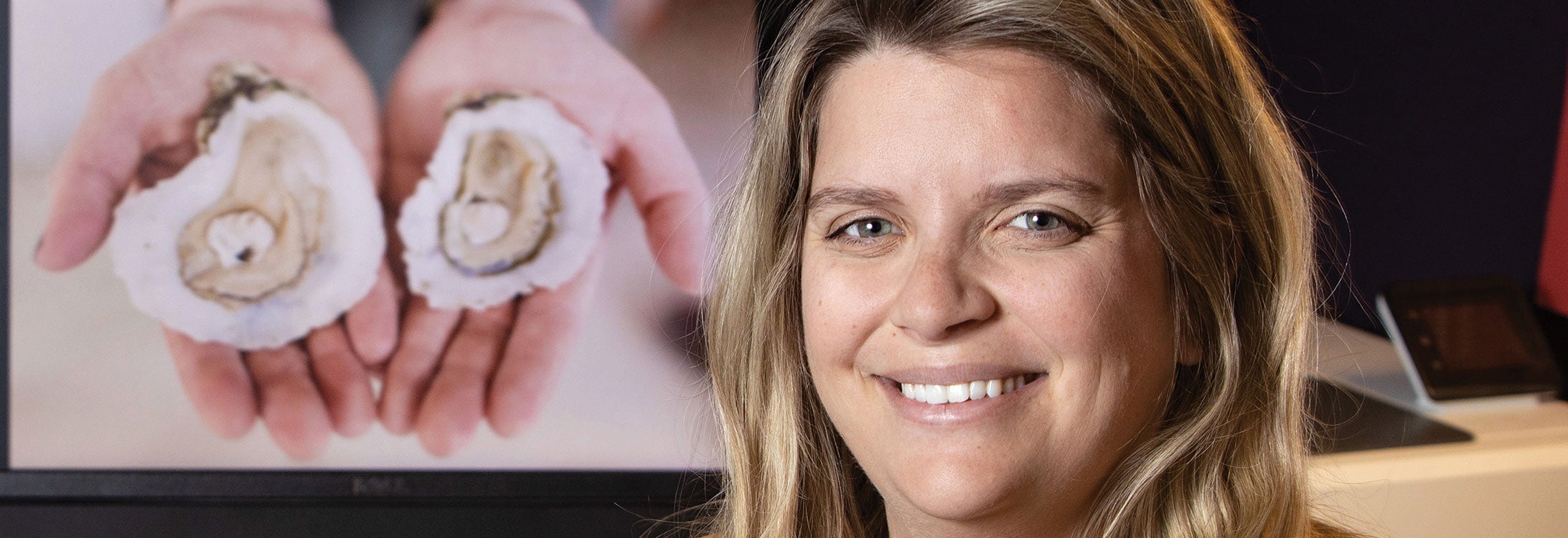Oyster tourism could be next big thing in eastern North Carolina
In stuffing, soup or simply steamed, oysters are a part of many food traditions.
Making it easier for consumers to find oysters is one of the long-term goals of a multi-institutional grant involving Emily Yeager ’12 ’14, an assistant professor of recreation sciences at ECU. She’s part of a research team led by N.C. State University in partnership with North Carolina Sea Grant, the N.C. Coastal Federation, N.C. Shellfish Growers Association and N.C. Economic Development Partnership.
The project, “Mariculture Tourism: Cultivating Consumer Demand & Coastal Community,” is one of 42 projects and collaborative programs recently receiving $16 million in national Sea Grant and National Oceanic and Atmospheric Administration funding aimed at advancing sustainable aquaculture in the United States.
Food tourism and agritourism is a growing market across the country, and oysters are in that niche, Yeager said.
One report shows 77% of U.S. travelers recently participated in food tourism activities at breweries, wineries, cooking schools, culinary events or farm-related events. These types of activities build connections for tourists, who may seek out foods closer to home or plan future trips to other destinations.
As part of the study, a profile of potential shellfish mariculture tourists — those who enjoy oysters, clams, mussels and other seafood — will be developed that would allow coastal communities to capitalize on the growing interest of food tourism and agritourism.
Yeager’s also met with stakeholders such as growers, restaurant owners and special interest groups. Mitch Carstens, a first-year ECU graduate student, is assisting.
The researchers will compare supply and demand for shellfish mariculture tourism in North Carolina, mapping areas where products already exist and others with opportunities for business and resource development, according to the grant summary.
“This is research that benefits eastern North Carolina,” said Yeager, who has a bachelor’s degree in geology and a master’s in sustainable tourism. “There are people wanting to invest in aquaculture in eastern North Carolina. We are looking at how to unify the supply chain.”
Virginia already has a state oyster trail with an online map and trip planner. North Carolina could have a similar product. “We’re laying the groundwork for this,” Yeager said. “We want to find out from stakeholders if this is what they want.”
The lead investigator on the project, funded at $119,784 for two years, is Whitney Knollenberg at N.C. State.
Susan White, executive director of N.C. Sea Grant, said in a news release the efforts will help improve and expand the aquaculture industry in North Carolina.
“Our country imports 85% of its seafood,” she said. “There’s tremendous potential for the aquaculture industry to increase its share of the market in North Carolina and more broadly across the United States.”
